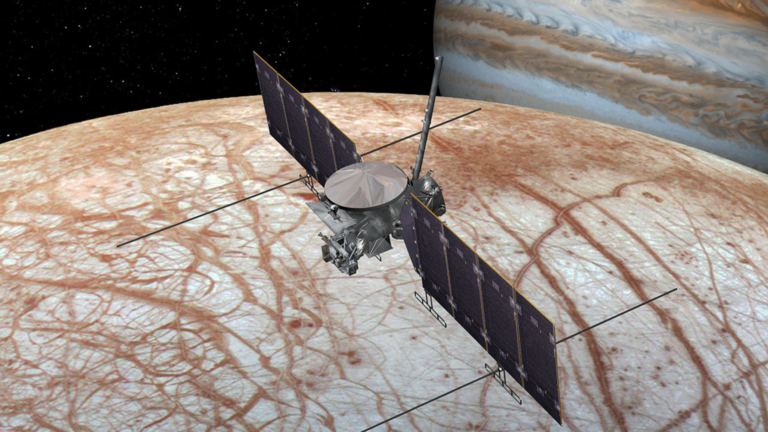
The Laboratory for Atmospheric and Space Physics (LASP), the University of Colorado Boulder’s oldest and highest-budget research institute, has appointed Chris Pankratz its new director of mission operations and data systems. This position oversees the 150 professionals and students who are responsible for LASP’s space mission and instrument operations and data handling systems.
Pankratz brings more than three decades of engineering, science, management, operations, and data processing and analysis experience to the role. This includes his work at the High Altitude Observatory at the National Center for Atmospheric Research as well as at LASP, where Pankratz has served as the head of the data systems department for 18 years.
“I am pleased to announce that Chris Pankratz has agreed to serve as our institute’s Director of Mission Operations and Data Systems,” said LASP Director Dan Baker. “His wealth of experience will be critical for maintaining the reliable operations of the billion-dollar portfolio of spacecraft and instruments that LASP students and professionals currently control, as well as developing the data systems and tools that generate and disseminate scientific data products around the globe. I look forward to working with him closely as part of our senior leadership team.”
LASP’s mission operations team is responsible for the day-to-day operations of dozens of spacecraft and instruments, which are controlled using the institute’s specialized command-and-control operational software. This is customized to the specific needs of each instrument. LASP is currently operating NASA’s IXPE (Imaging X-ray Polarimetry Explorer) and AIM (Aeronomy of Ice in the Mesosphere) missions, the four observatory MMS (Magnetospheric Multiscale) instrument suite, several SmallSat missions, and a variety of instrument payloads on other earth-orbiting and interplanetary missions.
“I’m honored to be taking on this new role at LASP. The hallmark of LASP’s successful 75-year history in space research has been a sense of teamwork and a commitment to enabling the advancement of scientific research and discovery,” said Pankratz. “I look forward to upholding these traditions and am privileged to guide our preeminent team into the future.”
The data systems department at LASP serves as a crucial interface between space missions and science. The team focuses on building the websites, data processing systems, analysis capabilities, and underlying technologies that enable all facets of scientific research, including a variety of data products, tools to access and visualize large volumes of complex data, and machine learning. LASP also operates Science Data Centers for six current and upcoming missions.
Prior to managing LASP’s data systems department, Pankratz served as the mission Science Operations Center manager and technical lead for NASA’s flagship MMS mission, a nearly $1 billion effort to study Earth’s magnetosphere using four identically instrumented spacecraft flying together in formation. Prior to this, he served as the data systems manager for several additional NASA missions, including SORCE (SOlar Radiation and Climate Experiment) and AIM.
Pankratz holds a master’s degree in physics from Johns Hopkins University and a bachelor’s in aerospace engineering from CU Boulder. He has authored or coauthored numerous research papers on MMS, SORCE, and other missions and frequently presents technical results at scientific conferences, including the American Geophysical Union annual meeting, the European Geosciences Union general assembly, and European Space Weather Week, among others.
Pankratz has led a number of employee recruitment activities that have improved staff diversity at LASP. “I look forward to continuing to work to foster a work environment that values inclusion and equity,” he said, “and to further empowering the LASP community and enhancing its reputation as an international leader in space science.”
Founded a decade before NASA, the Laboratory for Atmospheric and Space Physics at the University of Colorado Boulder is on a mission to transform human understanding of the cosmos by pioneering new technologies and approaches to space science. LASP is the only academic research institute in the world to have sent instruments to every planet in our solar system. LASP began celebrating its 75th anniversary in April 2023.



